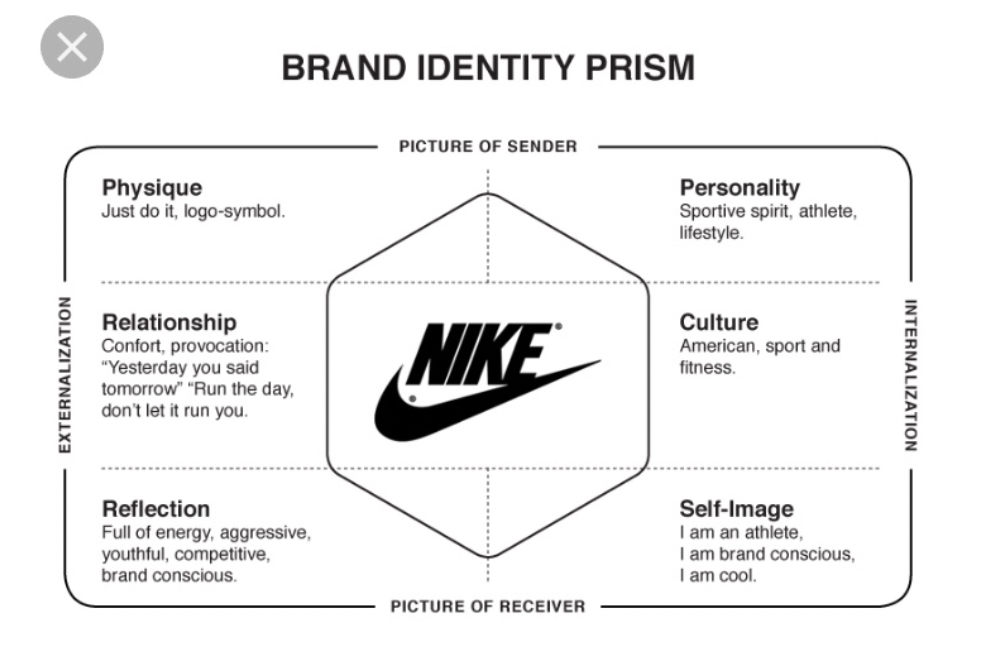
The Power of Small Business Branding: Making an Impact
Last update: 12 January 2024 at 10:56 am
Small businesses are often seen as the underdog in the world of business. They are up against large corporate giants and often have to fight for their share of the market. But, when it comes to branding, small enterprises have a unique opportunity to make an impact in a crowded market.
Through effective branding, small companies can stand out from the competition and create a strong brand identity for themselves.
But creating a strong brand can be a challenge for small companies. With limited resources, they must be strategic and creative when it comes to branding.
This blog will explore the power of small business branding and how small enterprises can make an impact in a crowded market.
Here are some stats to consider:
- Over 80% of consumers believe that a brand’s visuals, such as its logo, color scheme, and typography, are all important when judging a brand.
- According to 72% of marketers, advertising in magazines is less effective than branded content.
- 74% of customers identify with a brand because of its values.
- When choosing which businesses to admire and support, 88% of buyers see authenticity as an important consideration.
- Three out of five consumers say that customer service is the most important factor in building brand loyalty.
What is Branding?
Every company and organization must have a strong brand. It’s a technique to engage people on an emotional level and to convey the distinctive value of your business to potential customers. This way, they know what to expect from your company.
At its core, branding strategies involve creating an image or identity that can be used to identify your company or organization.
This image is expressed through visual brand assets like business cards, logos, colors, photos, and typography, as well as vocal elements such as message and narrative.
Others may also go for taglines, jingles, or mascots, which become synonymous with the company. One such memorable and widely popular example of branding is Ronald McDonald, the primary mascot of the fast food giant, Mcdonald’s.
This example of brand marketing ties up the mascot immediately to the company for existing and potential customers. Created by the advertising agency of Oscar Goldstein, this is one of the most popular branding strategies that help with the brand’s identity.
Many marketers may get confused by products and brands. Suppose you sell shampoo, it is a product, not a brand, as many others sell it. It misses the mark of ‘exclusivity’.
But if you sell a luxury shampoo only to a niche audience (like high-end salons) then this is a brand. Its unique value proposition is that touch of ‘exclusivity’ that is available only to select customers.
Your Personal Branding
Your branding initiatives should be geared to represent your organization’s basic beliefs, mission, and personality appealingly and consistently. This is accomplished through a variety of visual elements.
This brand strategy can involve the creation of a slogan and the design of a logo. The brand identity can be further strengthened by the development of an online presence and the development of a distinct visual style to convey the brand messaging.
Additionally, your branding needs to be customized for your target market. You ought to think about who your target customers are, what interests them, and how they spend their time. By doing so, you will have a better understanding of what type of brand messaging and promotional materials will best appeal to potential customers.
Any organization or business has to have a strong brand positioning. This way, it can connect with people on an emotional level. Your firm or organization may stand out from the crowd and effectively communicate its distinctive value by developing a strong, consistent brand identity.
Why is Branding Important for a Small Business?
In order to build an identity and obtain a competitive edge in their particular marketplaces, branding is crucial for small companies. The act of building a strong, favorable brand personality in the minds of potential customers is called branding, and it may be used to set a business apart from its rivals.
Small businesses may develop a distinctive character, improve their exposure, and develop a network of devoted customers by investing in branding.
The significance of branding for small companies cannot be emphasized. Small businesses struggle to set themselves apart from their competition and make an impression on their target audience without strong brand guidelines.
Branding assists small firms in differentiating their products or services and developing a significant competitive edge. A well-defined brand assists small enterprises in developing a distinct image and establishing a compelling presence in the marketplace.
Looking |
Discover the most relevant agencies for your project based on your own specific requirements.
Find an agency!Getting Closer To Your Clients
Branding not only helps small businesses differentiate themselves from a competitor but also aids in improving client connections. Customers can develop a sense of trust in a company and feel more of a part of it when the brand is strong.
Newly established companies may establish a relationship with their clients and build loyalty over time by investing in branding. Customers may identify a firm by its brand and feel certain that the goods or services it provides are of the highest caliber.
Effective branding may assist a small firm in raising brand recognition and attracting new clients. Branding also assists small companies in increasing exposure and reaching a larger audience.
What Should Your Branding Budget Look Like and How to Build Your Own?
Most people can identify certain brands merely from a logo. Think of major names such as Nike, Starbucks, or Walt Disney. These brands have managed to build an enviously effective brand image. But branding is much more than just that… Branding is a systematic endeavor to create a desirable perception of your established business in […]
6 Steps to Build Your Small Business Branding
In order to differentiate yourself from the competition, draw in more clients, and boost your organization’s overall profitability, it is essential for small business owners to develop an effective branding plan. The process of creating a brand for your small company can be easy and quick.
Here are six stages to follow when you begin developing an effective branding plan.
Develop Your Brand Message
The most important step in building a successful small business brand is to develop a clear and concise brand message. This message should be based on your core values and should be communicated in all of your marketing materials, from your website to your business cards.
Your marketing messages should be about more than just the products or services you offer; they should also include an emotional connection that resonates with your target audience.
Identify Your Target Audience
Once you have developed your brand message, the next step is to identify your target audience. Think about who would be most interested in your products or services and create a profile of your ideal customer.
This will help you create content and visual elements that appeal to your target audience and allows you to better tailor your messaging. Such marketing strategies will help you create a more effective marketing strategy for your target market.

Create a Unique Logo and Visual Identity
Your logo and visual identity are the faces of your brand. Branding companies should design them in a way that reflects your brand message. When creating a logo, make sure it is simple, memorable, and recognizable.
Also, your logo should be versatile enough to be used on a variety of materials, from websites to business cards.
Design Your Website
Your website is the foundation of your digital presence. A branding agency should design in a way that reflects your brand identity. Your website should be easy to navigate, optimized for search engines, and have a simple, clutter-free design.
Furthermore, make sure to include a blog or other content-rich pages that help you engage with your target audience.
Leverage Social Media
With the use of social media, you may interact with and develop relationships with your target market. Use various social media channels to advertise your goods and services and share material with your target audience that they will find interesting and relevant.
Analyze Your Results
The final step in building your small business brand is to analyze the results of your efforts. Utilize analytics tools to track your website’s performance, as well as the performance of your social media campaigns.
This will help you identify strengths and weaknesses in your strategy and make adjustments where necessary.
Building a successful small company’s brand can be a complex and time-consuming process, but it doesn’t have to be. From developing a clear brand message to utilizing social media, your small companies can benefit greatly from a strong and effective branding strategy.
By following these six steps, you can create a powerful and effective branding strategy for your small business.
3 Branding Myths You Should Never Believe
When it comes to branding, it’s important to separate fact from fiction. Unfortunately, there are a number of myths about branding that have been circulating for years and have become accepted as truth. If you’re considering investing in a branding strategy for your business, it’s important to understand the facts to save time and money on effective branding tactics.
Myth 1: Branding Is All About Logo Design
One of the most pervasive myths about branding is that it’s all about logo design. While a logo is certainly an important component of your branding strategy, it’s only one piece of the puzzle.
A strong brand requires much more than a visual identity, including a well-crafted message about who you are, what you stand for, and why someone should choose your business over the competition.
Your branding should also incorporate a consistent look and feel across all of your marketing materials and customer touchpoints, from your website to your social media presence.
Since it is a wide domain, it is best to connect with branding companies to get stellar results in branding and achieve brand consistency.
Myth 2: Branding Is Not Important
This myth couldn’t be further from the truth. Branding is essential to the success of your business. A strong brand identity will help you stand out in a crowded market and create an emotional connection with customers.
It will also make it easier for customers to recognize and remember your business. Branding can also help you attract new customers, build loyalty among existing customers, and position yourself as an industry leader.
Myth 3: Branding Is Expensive
Lastly, many people believe that branding is expensive and out of reach for most small businesses. However, this is only sometimes true. While it’s true that developing a comprehensive branding strategy can be costly, there are also many cost-effective ways to create and maintain an effective brand.
For instance, you can start by investing in basic logo design using a reliable logo maker, then build out your branding strategy over time by creating content, launching social media campaigns, and developing a consistent look and feel for all of your marketing materials.
Branding is an important part of any business’s success, and it’s essential that you understand the facts before investing in a branding strategy. By dispelling these three common myths, you can ensure that you’re making informed decisions and setting yourself up for long-term success.
Looking |
Discover the most relevant agencies for your project based on your own specific requirements.
Find an agency!Our Parting Thought
Small business branding is a powerful tool for businesses of all sizes. It can create a unique and memorable identity for your company and help your business stand out from the crowd in a competitive marketplace.
By creating a brand strategy and following through on it, small business owners can build a strong and recognizable brand that resonates with their target audience.
Ultimately, branding for small businesses is crucial to a successful company. Having an instantly identifiable brand that connects with your target market and distinguishes itself from the competition is critical. Small company owners may stand out in a competitive industry and build an enduring brand with the appropriate approach and dedication.










